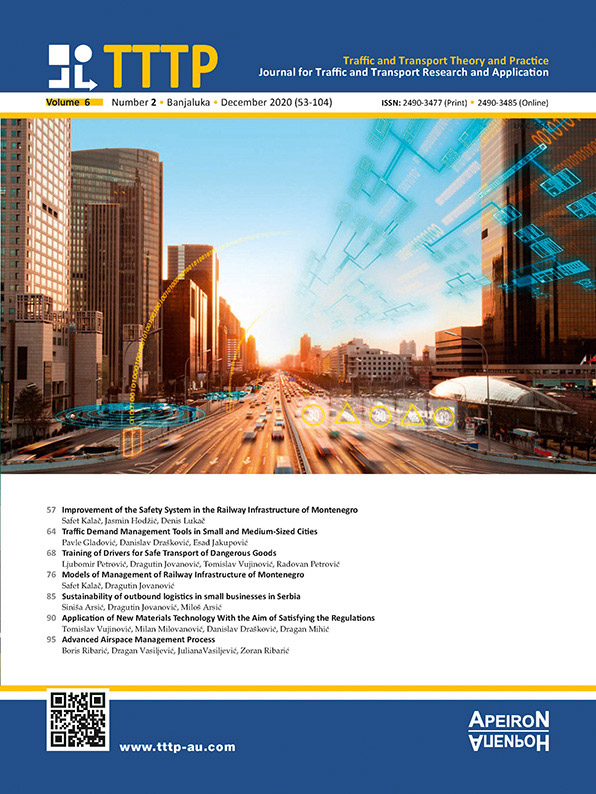Models of Management of Railway Infrastructure of Montenegro
DOI:
https://doi.org/10.7251/JTTTP2002076KAbstract
In time of rapid economic and technological change and turmoil, no one can manage business successfully, just because they think they are ‘smart’. In order to successfully manage organizations in the era of dramatic change, in this case ŽICG (Railway infrastructure of Montenegro), it is no longer sufficient to master the classical management process, but also to master the overall quality of management process.
In order to achieve the best possible business results in the Railway Infrastructure of Montenegro, the theoretical and practical knowledge on which the management process is based, starting from planning (goal setting, determining ways to achieve goals, allocating required resources), organizing (a division of labor, delegation of authority, coordination), leadership (supervision, motivation, remuneration and punishment, training), conflict resolution) and lastely control (choice of control parameters, monitoring of results, comparison of planned and realized, taking corrective actions).
In order to improve the current situation, the models of management of railway infrastructure are considered, for which as a manager builds and invests in railway infrastructure, takes care of its modernization, current maintenance, provides access and allocates infrastructure capacities and organizes and regulates railway traffic. In the processing of the management model, the work relies on the Strategy for the Development of Transport of Montenegro in the period 2019-2035, which establishes the situation in the areas of transport, defines the infrastructure, organizational and operational goals of the development of the transport system, which are realized through time and long-term implementation plans.
